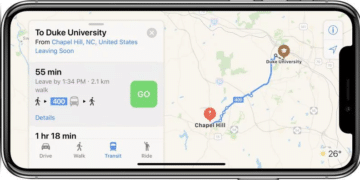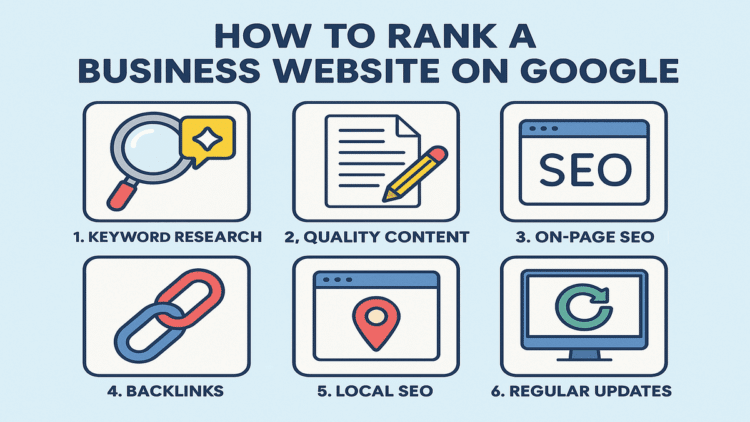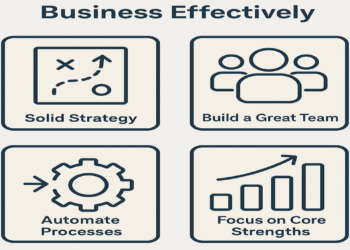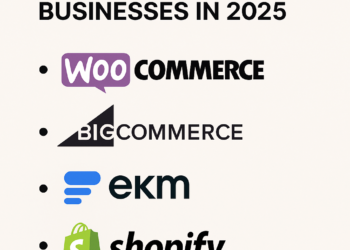Want to get your business website to the top of Google? You’re not alone. Every business owner dreams of ranking high on search results, but not everyone knows how to get there. The good news? You don’t need to be a tech wizard to improve your Google rankings.
With the right SEO strategies, you can drive more traffic, attract customers, and grow your business. Let’s dive into the steps that can help you rank higher on Google!
1. Start with the Right Keywords
SEO for businesses starts with keywords. These are the words and phrases your potential customers type into Google. You need to find the ones that match your business and use them naturally in your content.
Use Google Keyword Planner – It helps you find what people are searching for.
Think Like Your Customers – What would they type if they were looking for your service?
Focus on Long-Tail Keywords – These are longer phrases with less competition but high intent (e.g., “best organic coffee shop in London”).
Once you have your keywords, sprinkle them throughout your website. Use them in headings, content, meta descriptions, and URLs.
2. Optimize Your Website’s Structure
Google loves well-structured websites. If your site is messy, slow, or confusing, your rankings will suffer. Here’s how to fix it:
Make It Mobile-Friendly – More than half of web searches come from mobile devices. If your site isn’t mobile-friendly, you’re missing out.
Speed It Up – Slow websites frustrate visitors. Use tools like Google PageSpeed Insights to check your site speed and fix issues.
Use Simple URLs – Clean and keyword-rich URLs help Google understand your pages.
Improve Navigation – A clear menu and internal linking make it easy for visitors (and Google) to find content.
3. Create High-Quality Content
Content is king. If you want to rank higher on Google, you need valuable content that helps your audience. This means:
- Writing blog posts that answer common questions.
- Creating guides and tutorials that provide solutions.
- Using a mix of text, images, and videos to keep users engaged.
- Posting regularly to show Google that your site is active.
Want to stand out? Make your content better than your competitors’. Add unique insights, real-life examples, and actionable advice.
4. Master On-Page SEO
On-page SEO is all about optimizing elements within your website to improve rankings. Here’s what to focus on:
- Title Tags – Include your main keyword and keep it catchy.
- Meta Descriptions – Write compelling descriptions that encourage clicks.
- Header Tags (H1, H2, H3) – Use them to structure content clearly.
- Internal Links – Link to other relevant pages on your site to improve navigation.
- Image Optimization – Use alt text with keywords so Google can “see” your images.
5. Build High-Quality Backlinks
Google sees backlinks (links from other websites to yours) as votes of confidence. The more quality links you have, the higher you rank. Here’s how to get them:
- Guest Blogging – Write for other websites and link back to yours.
- Create Shareable Content – Infographics, research, and unique insights get shared.
- Partner with Local Businesses – Get listed on their websites.
- Reach Out to Influencers – Ask them to link to your useful content.
Avoid spammy backlinks from low-quality sites. Google penalizes that!
6. Optimize for Local SEO
If you have a local business, local SEO tips are essential. Here’s what you should do:
Claim Your Google My Business Listing – This helps you appear in local searches.
Get Customer Reviews – Positive reviews improve trust and rankings.
Use Local Keywords – Mention your city or area in your content.
List Your Business in Local Directories – Sites like Yelp, TripAdvisor, and industry-specific directories can help.
7. Stay Active on Social Media
Google doesn’t directly rank websites based on social media, but having a strong social presence can indirectly boost rankings. Increased shares and engagement on social platforms lead to greater visibility, which drives more traffic. This increased exposure can be a valuable factor when seeking best investment opportunities, as it helps enhance your website’s overall reach and credibility.
- Share your blog posts and updates regularly.
- Engage with your audience.
- Collaborate with influencers.
8. Track Your Progress
SEO isn’t a one-time job. You need to track what’s working and adjust your strategy.
Use Google Analytics – See where your traffic is coming from.
Check Google Search Console – Find out which keywords bring visitors.
Monitor Your Rankings – Use tools like Ahrefs or SEMrush.
Final Thoughts
Ranking a business website on Google takes time, but with consistent effort, you’ll see results. Focus on great content, website optimization, and smart SEO strategies. Stay patient, keep improving, and watch your rankings climb!
Want to get started? Pick one strategy from this list and take action today!

























